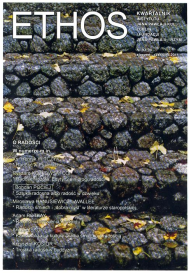Vol. 24 No. 1 2(93 94) (2011): OF JOY
Profesorowi Adamowi Rodzińskiemu
z wyrazami czci oraz głębokiej wdzięczności
za twórczą obecność we wspólnym dziele
„Ethos”
Full Issue
FROM THE EDITORS
Articles
15-18
published: 2011-06-30
19-26
published: 2011-06-30
27-40
published: 2011-06-30
69-88
published: 2011-06-30
100-118
published: 2011-06-30
119-140
published: 2011-06-30
141-154
published: 2011-06-30
166-180
published: 2011-06-30
181-200
published: 2011-06-30
215-228
published: 2011-06-30
234-248
published: 2011-06-30








